 Chris Ashton divides opinion like no other current international in Britain, or Ireland. There are those who see the England wing as a cocky ‘disrespectful’ chancer, who not only rubs his opponents’ noses in it with his “Ash-Splash” when he scores, but does not play as good a game as he talks.
Chris Ashton divides opinion like no other current international in Britain, or Ireland. There are those who see the England wing as a cocky ‘disrespectful’ chancer, who not only rubs his opponents’ noses in it with his “Ash-Splash” when he scores, but does not play as good a game as he talks.
Others say that Ashton is a driven, dedicated professional with the restless spirit of a true adventurer – and that the Splash is nothing more than the exuberance of a prolific and exceptional natural-born try-scorer.
Until a fortnight ago the naysayers were in the ascent. They were able to point to the fact that England’s ace finisher had gone 11 Tests without scoring a try, and that the Rugby League convert’s early spree of 15 tries in 17 Tests was more luck than judgement, or ability, and predicted that he and his celebratory swan-dive were heading for the international rugby knackers yard.
Ashton had unwittingly made a rod for his own back by admitting that scoring tries, like his seeringly spectacular 85 metre strike against Australia at Twickenham two years ago, is his biggest buzz in rugby. He had also upset some fans – especially in the Northampton area – by a summer move from the Saints to Saracens which they saw as a mercenary hiring out to the highest bidder.
Then, against New Zealand, Ashton’s fortunes – like those of the England team as a whole – were resurrected in one fell swoop. The swoop in question in the spectacular victory over the world champions was trademark Ashton, tracking Manu Tuilagi‘s superb break before accelerating smoothly up on his outside to collect the pass for England’s second try, which he rounded off with a dive that he insists was instinctive rather than premeditated.
Ashton, clean-cut and dapper as a choirboy, was neither diving, nor ducking, when he arrived to be interviewed at the Saracens training ground at Old Albanians in midweek, with today’s crucial Heineken Cup return leg against Munster at Vicarage Road looming large.
However, first things first, did scoring against the All Blacks – his 16th try in 29 Tests – get the monkey off his back?
“The try was a bit of a relief – I’ve been waiting for that for a long time. You’ve just got to follow Manu, and every so often he will get clean through. But I haven’t had an issue with scoring tries, it’s just that people kept on bringing it up with England. So, it was good to score for England, but with Saracens it’s completely different, and I’m just bothered about winning this weekend.”
Ashton’s beady focus on Munster stems from bitter disappointment, because in his five seasons at Northampton he won only once against the Irish province, despite playing them five times – and last weekend’s 15-9 reverse for Saracens at Thomond Park, kept the losing run going.
This time though there was bonus point consolation, and, Ashton says, good reason to believe Saracens can get the better of the two-time Heineken Cup holders.
“We can be a lot better this week, but Munster is always a big ask. They focus on this competition. I was speaking to Jimmy Downey, who’s a good friend, and he says this is the main focus of their year, what they build for. For us it’s a bit different – last week was difficult because eight of us had been away for five weeks during the autumn, and we had just one training session.”
Ashton says that Munster have moved on from a forward-orientated approach and play with width, although he keeps coming back to Ronan O’Gara, and with it, inevitably, the veteran fly-half’s 42-phase drop-goal that denied Northampton a famous, and possibly decisive, away win in last season’s pool stages.
“We were so close so many times – especially the last one with the O’Gara drop-goal. We actually had them two minutes earlier when Vasily Artemyev dropped the ball over the line when it would have put us out of sight. Then there was the 42 phase move – although I’m sure there were about four knock-ons and six penalties in there somewhere! It was absolutely heartbreaking.”
He says Saracens must not start as slowly as they did in Limerick: “They have such experience, and O’Gara knows where to put the team, and what positions they’ll do well from. Then there’s his kicking. You can’t give too many penalties away. I don’t think our set piece was as good as usual, which is something our props won’t be happy with, and we were giving easy penalties away. Silly stuff.”
Ashton believes that Saracens, who scored eight tries against Edinburgh in the first round, also bring an ingredient which Northampton lacked. “In defence there is a lot more pressure put on opposing teams – at Saracens we have the ability to put O’Gara under pressure. At Northampton we kind of soaked up their attack and let Munster come at us. You cannot really afford to do that, because when any of these teams gets on a roll they just keep going with it.”
Ashton, 25, does not hide his ambition: “I want to win Heineken Cups and Premierships. I want to do well at this club…I want to impress. The lads here want to go a step further in the Heineken Cup, and we are all pushing for that. Without a doubt there’s more to come (from me). However, when people understand where you’re playing, and how to mark you, and get in your way, you have got to adapt to that. You have your best years from probably between 25 and 28, and moving to Saracens has freshened it up a bit.”
Josh Lewsey is someone who has achieved what Ashton wants, and the 2003 World Cup-winning full-back/ wing, who scored 22 tries in his 55 England appearances, offers an objective appraisal of Ashton’s progress.
“He’ll take confidence from finishing against the All Blacks on a high, and that will have banished a few demons. He is a big match player who enjoys a stage, so to dot down against the best team in the world will have done him a power of good. He will hopefully take that into the Heineken Cup – to me the best club competition in the world – and into the Six Nations.
“How you play in the back three often reflects the rest of the team, because if everything else is working well you will get more of the ball, in better positions. But if the team is not on top you may only get the chance to run kick returns, and when there is a lack of ball there is a tendency on the part of the back three players to become impatient.”
Lewsey also offers an insight into the huge work-rate that led Shaun Edwards to describe Lewsey as one of the best big game players there has been in professional rugby.
“Ashton’s ability is based on his work-rate off the ball, where he is looking for the offload to come his way. He’s got to be given credit for being there, but credit must also go the ball-carrier …at Wasps they would say to me, ‘We want 20 carries from you a game’. Often the back three are pound-for-pound the best athletes in the team, and therefore increasingly the idea is to get them into the game as much as possible.”
Lewsey highlights the chance that Ashton let go against South Africa by passing to Mike Brown: “I’m sure that overall he’ll be disappointed with his autumn series form, and will recognise that sometimes he tried to force it too much. If he’s looked at the tape of the South Africa match again he’ll probably kick himself that he didn’t pin his ears back. However, it always amazes me how fickle the media can be, because a player like Ashton does not go from being good to bad overnight.”
Lewsey concludes: “He is mentally a tough competitor who has worked hard to get better and better, while it also helps being at a top club. In the autumn he was just desperate to make an impact, and that’s when coaches need to identify this and get the best out of a player by actually taking pressure off, encouraging him to simply enjoy it, and have some fun. Then the game comes to you easier.”
Ashton has had to be resilient over the last year, having to weather the fall-out not just from England’s failed 2011 World Cup campaign, but also his contentious decision to join Saracens, prompting a row with Saints director of rugby, Jim Mallinder.
He reflects that the transfer was dictated by a restless nature that saw him move house every year he was at Northampton: “It gets a bit difficult when people don’t think you want to be there. It’s not the case, you just want a change. It was always going to be a tough time to get through, but hopefully we’re over that now.”
Ashton says that his move to Saracens was also linked to Andy Farrell, the England backs coach who was his boyhood hero when he was at Wigan, and was announced as part of the 2013 Lions coaching team this week.
“He’s a great motivator for England. You can tell sometimes what people have done by the way they speak – and when he talks in team meetings people listen. I know from watching him when I was growing up what kind of a player he was, but even if you hadn’t seen that, you would know. He was a big influence on me coming here. He was the main person I spoke to about it, and I trusted his judgement. I’m very happy – it’s a great place, and I’m loving every minute of it.”
Ask him what else makes Farrell such a good coach and he says: “Detail. He’s willing to sit there and go through every minor detail with you.”
Ashton says that during England’s autumn camp the detail involved seeing what he could learn from opponents. “I looked at Bryan Habana from the summer tour of South Africa and studied what he did well, such as his ability under the high ball and sense of anticipation.”
For all the carefree trimmings, Ashton is deadly serious about his trade as a finisher. An enquiry into the missed opportunity against the Springboks at Twickenham, and whether he had any niggling doubts about his fitness or pace, elicits this response:
“I feel as quick and as fit as I have ever been, 100 per cent. It’s just that you don’t get too many chances at international level. That’s the difficult thing. It’s a split-second decision. I’d never have scored it because there were three players covering back – I’ve seen it about 300 times – but maybe the right option was to take the yards on the outside rather than pass it to Mike Brown. But sometimes it’s a bit of the Rugby League coming out in you, in terms of being unselfish and not thinking twice about it. In a 2-on-1 situation I’m always going to go for the pass rather than trying to go around someone – that’s been put into me from being a kid.”
Suggest that the lot of a finisher is having to deal with those ‘what if’ moments, and Ashton sighs and says, “Tell me about it…”
However, the reflective stuff is soon replaced by enthusiasm as he contemplates the chance to press his Lions credentials.
“It would be the best thing that happened in my career so far. It’s probably the pinnacle of anyone’s career to play for the Lions. Everyone wants to do it, and you don’t get too many chances. Some go on one Lions tour, some are lucky enough to go on two, so when they come around you have to try and take them with both hands. Rugby conditions are good in Australia – it’s always fast – I’ve been over there with England at the same time of year, and it’s perfect temperature and weather for it.”
There are no prizes for guessing that “it”, in Ashton-speak, is try-scoring.

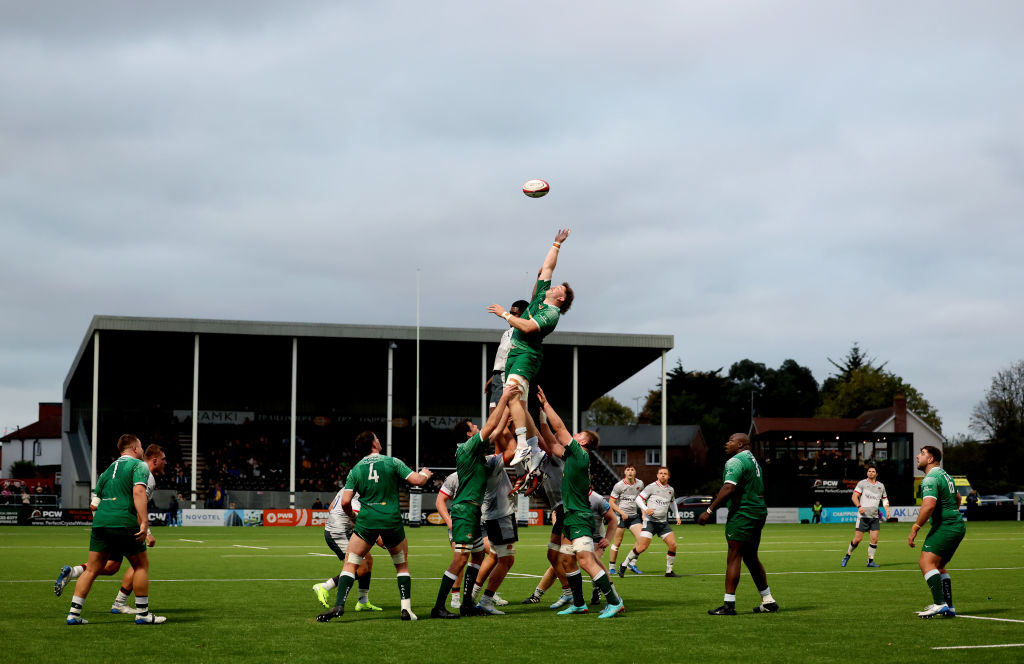
English Championship
What the new Championship format could mean for English rugby


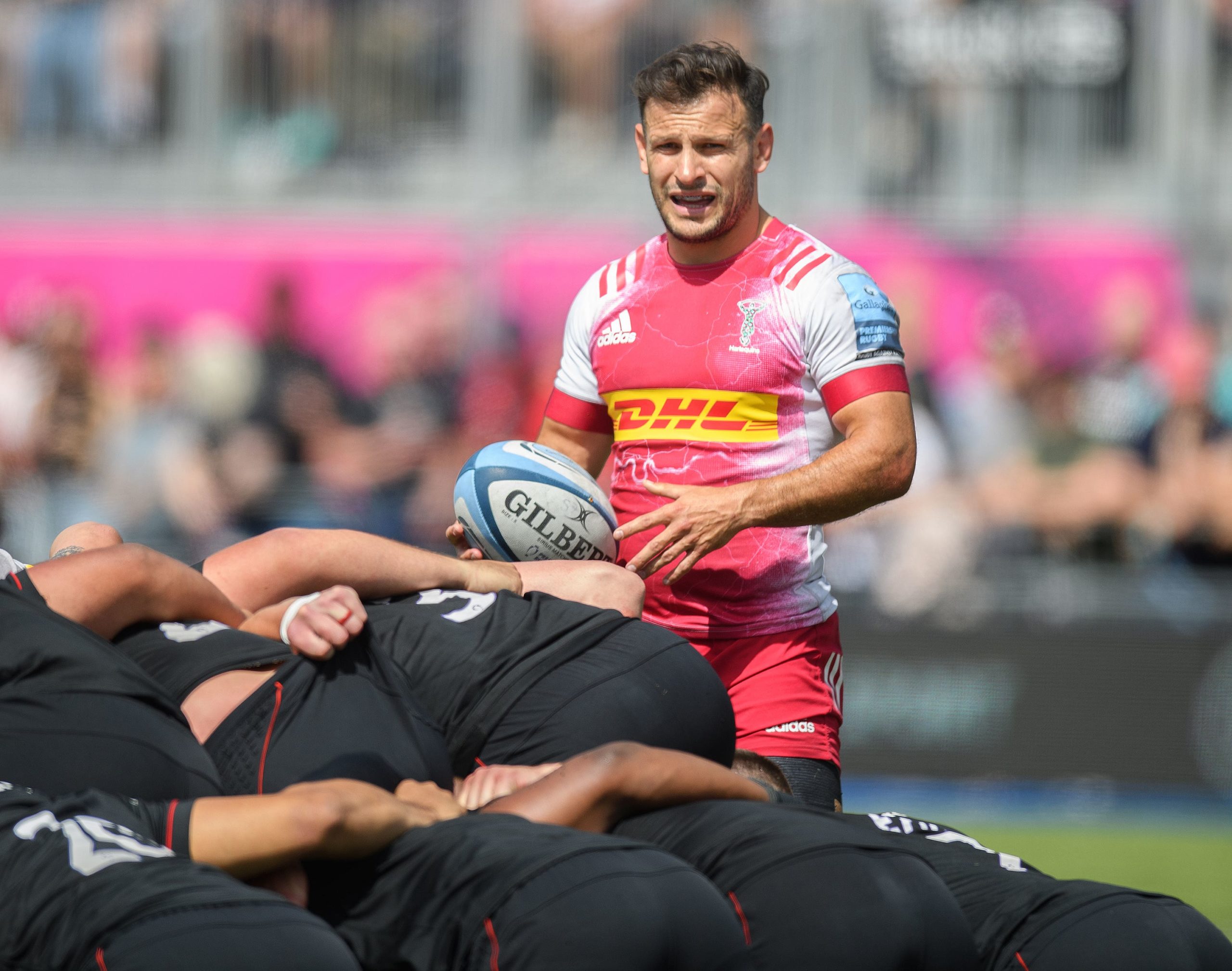















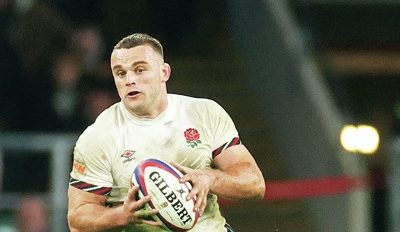



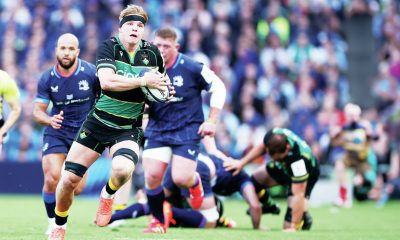

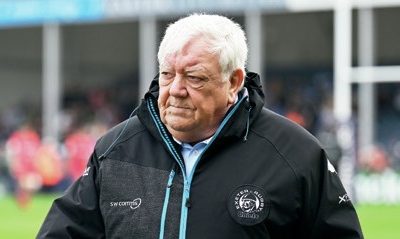


You must be logged in to post a comment Login